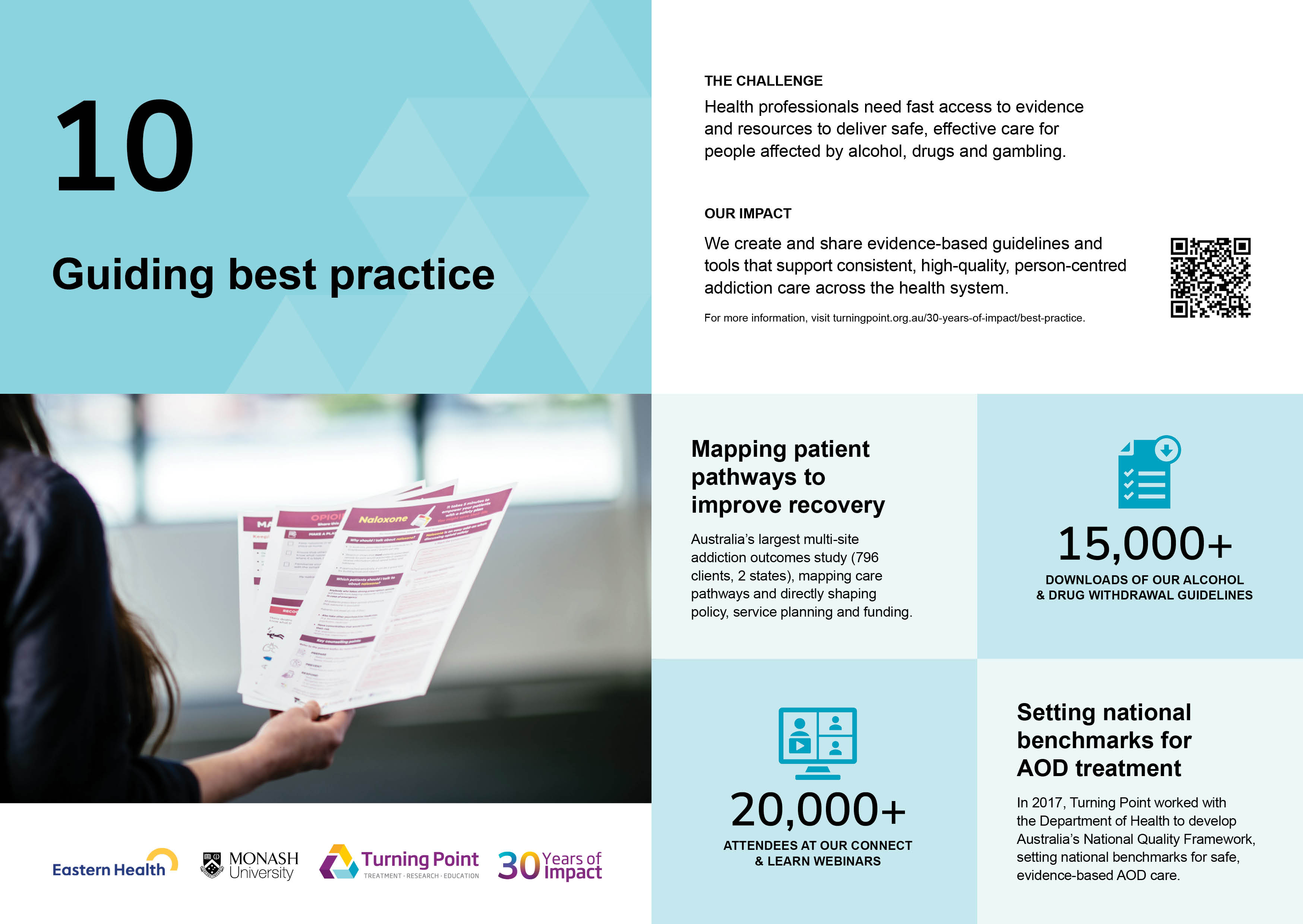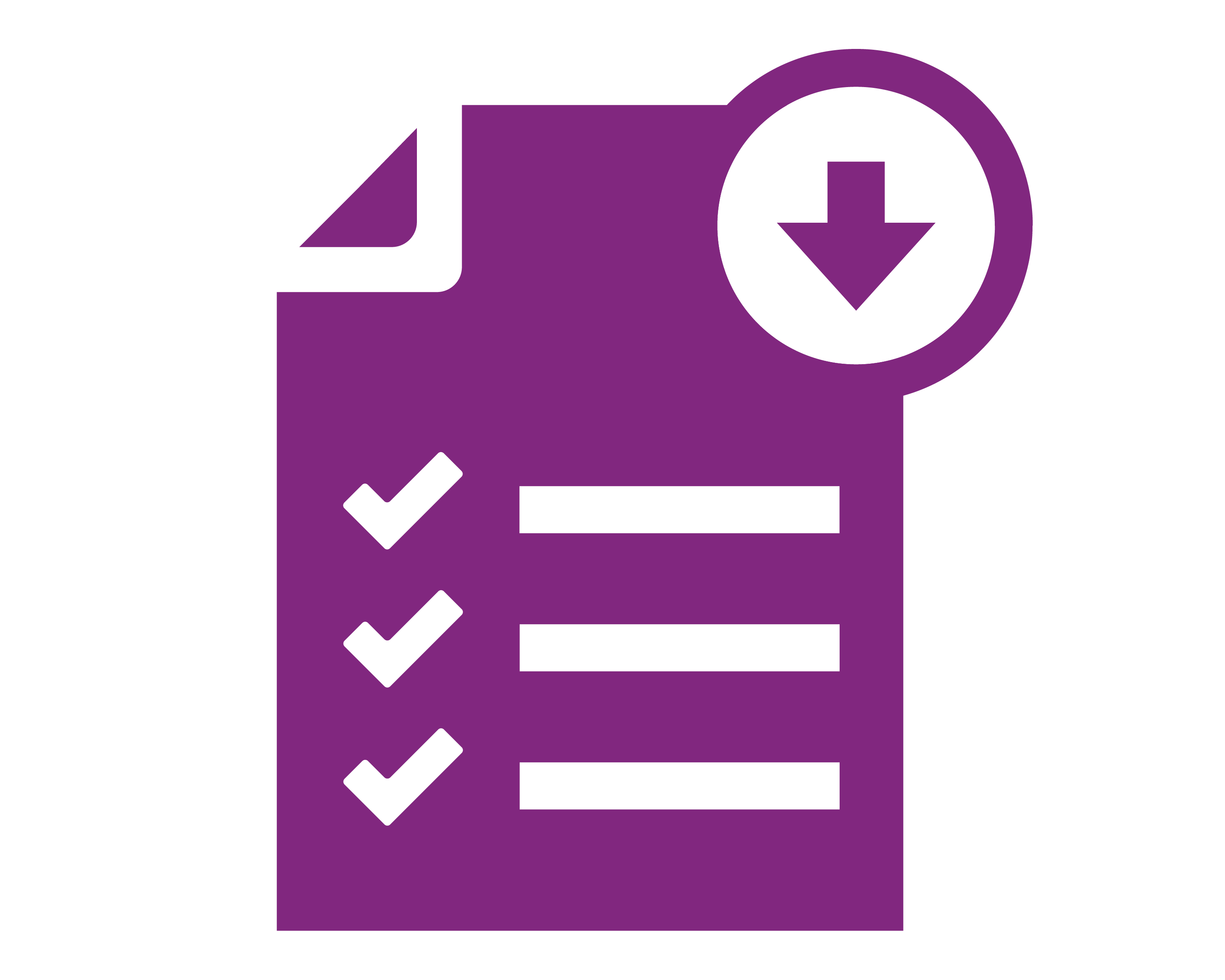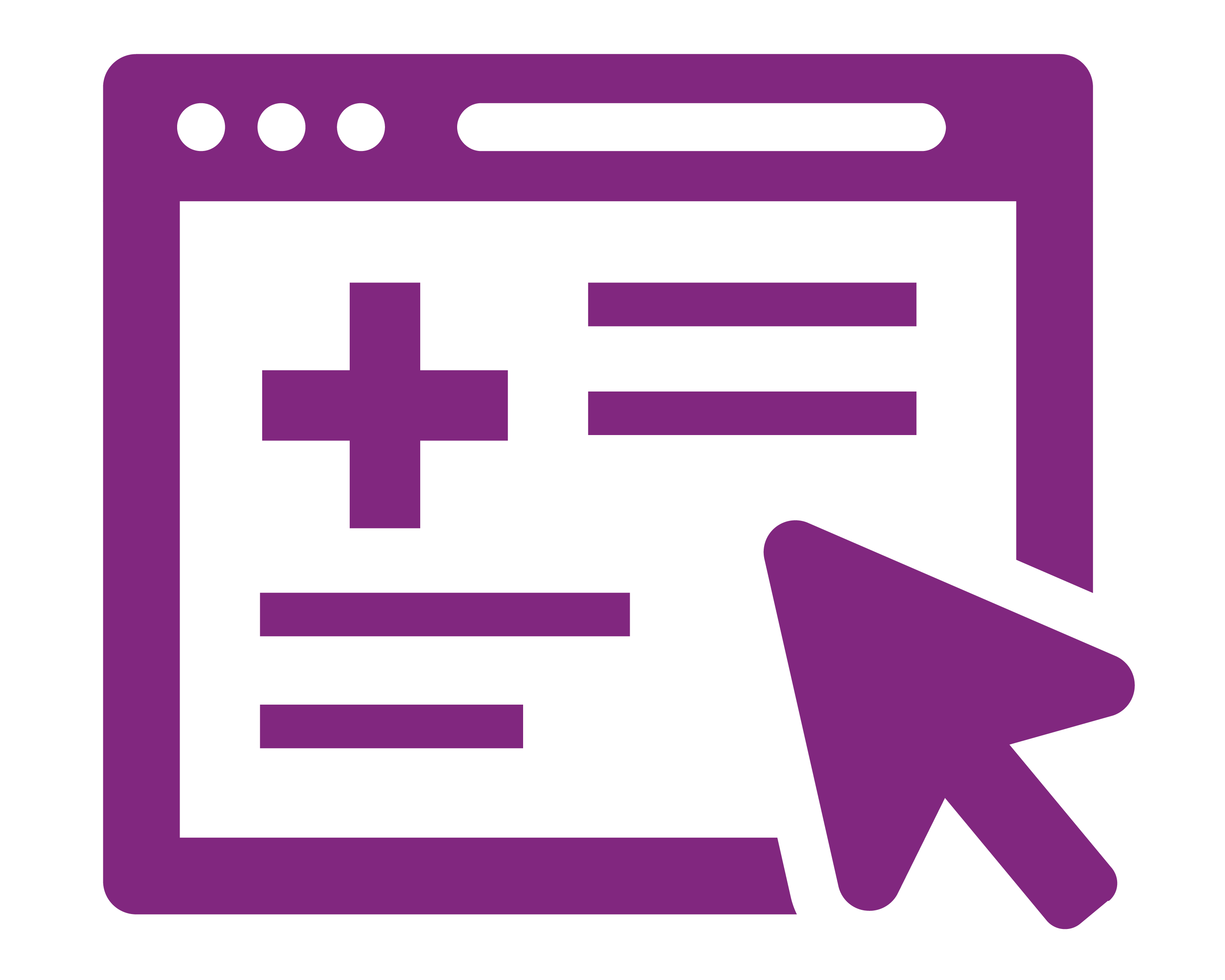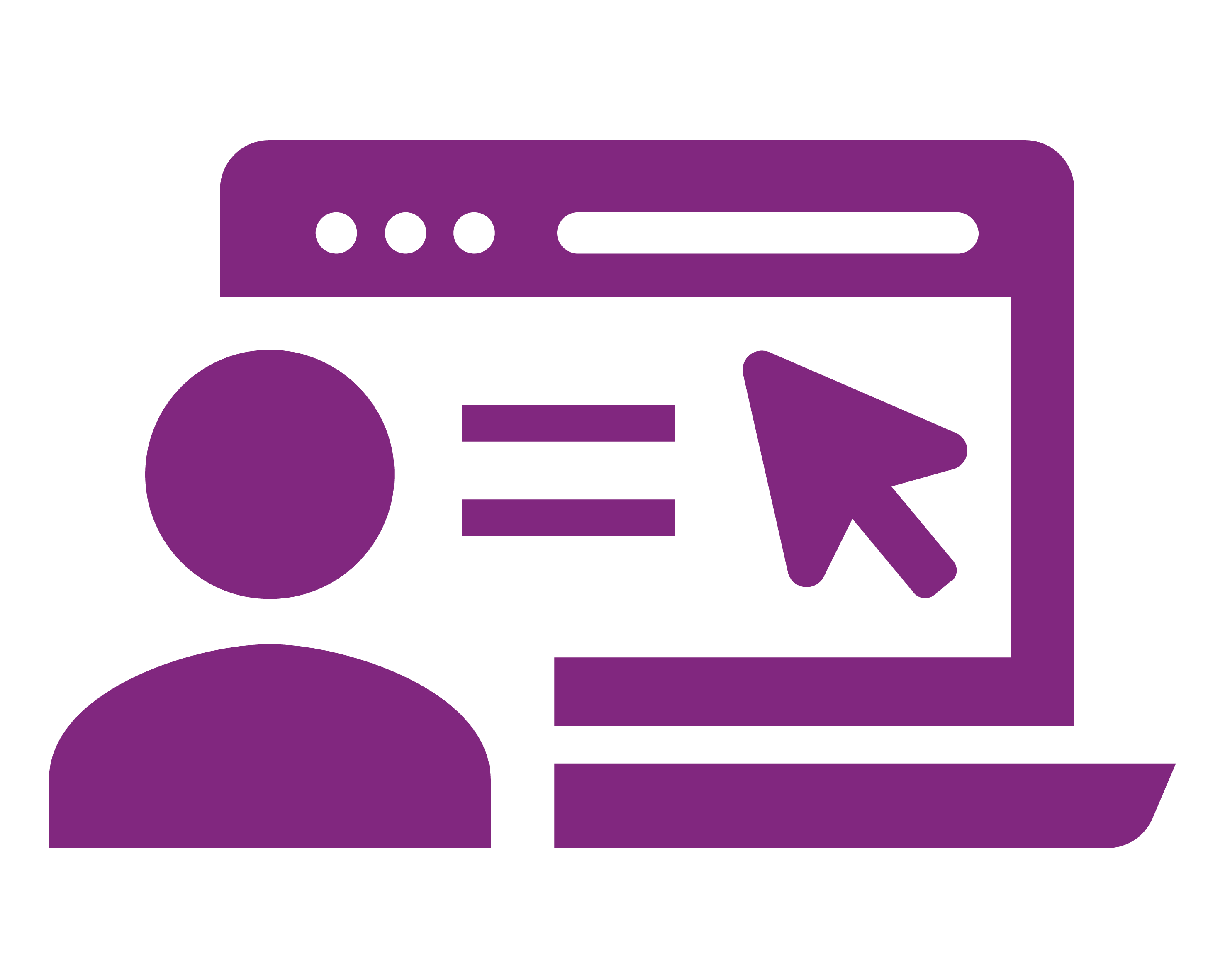The Challenge
Health professionals need fast access to evidence & resources to deliver safe, effective care for people affected by alcohol, drugs and gambling.
Our Impact
We create and share evidence-based guidelines & tools that support consistent, high-quality, person-centred addiction care across the health system.
15,000+
downloads of our Alcohol & Drug Withdrawal Guidelines
20,000+
attendees at our Connect & Learn webinars
2500+
annual views of clinical guidelines webpage
50K+
annual unique users of DACAS website
Major Milestones
Drug and Alcohol Clinical Advisory Service
Launched in 1993, the Drug and Alcohol Clinical Advisory Service (DACAS) has been a cornerstone of specialist support for health professionals. Operating 24/7 across Victoria, Tasmania, and the Northern Territory, DACAS provides secondary telephone consultations to guide safe, evidence-based responses to alcohol and drug concerns in clinical settings.
Beyond its helpline, the DACAS website offers a comprehensive library of fact sheets, clinical resources, and screening tools, creating a trusted repository of knowledge for medical professionals. With around 50,000 unique users each year, DACAS plays a vital role in strengthening workforce confidence and capability, ensuring that health practitioners across multiple jurisdictions can deliver informed, consistent, and high-quality care to people experiencing alcohol and drug-related issues.
Clinical guidelines
Since its inception, Turning Point has played a leading role in setting national best practice standards for the alcohol and other drug sector. Working closely with government and health services, we have developed a suite of evidence-based guidelines to support clinicians and ensure people receive safe, effective, and consistent care.
Our publications include the widely used Alcohol and Drug Withdrawal Guidelines and the Methamphetamine Treatment Guidelines, among others. Each has been periodically updated to reflect the latest evidence generated by our research teams, ensuring they remain relevant to emerging drug trends and treatment challenges.
By providing clear, practical frameworks for health professionals, these guidelines have shaped frontline practice across Australia, improving outcomes for individuals and strengthening the quality of care system-wide.
Developing Minimum Qualification Standards for AOD
In 2006, Turning Point, in partnership with the Victorian Department of Health, developed the Minimum Qualification Strategy (MQS) for AOD training.
This landmark initiative set a benchmark for the sector, ensuring that all alcohol and other drug workers in Victoria receive training that equips them with the skills, knowledge, and confidence to succeed in their roles.
By standardising workforce preparation, the MQS has helped lift the quality of care and strengthen professional practice across the Victorian AOD sector.
Statewide intake and assessment tools
Directing patients to the most effective treatment is critical for good healthcare. In 2013, Turning Point, in partnership with services across Victoria, developed a specialist alcohol and drug assessment tool to support this process. Designed to be simple yet effective, the tool helps health professionals quickly determine the most appropriate treatment pathway for people experiencing alcohol or drug problems.
To strengthen its use, the tool is supported by a worker’s guide, online training, support materials, and a digital checklist, with tailored versions developed for adults, young people, and those in the criminal justice system.
Its impact was immediate: within just six months of launch, more than 1,300 screenings were completed, improving access to appropriate and timely care.
National standards for AOD treatment
In 2017, Turning Point partnered with the Department of Health to develop Australia’s first National Quality Framework (NQF) for Drug and Alcohol Treatment Services, setting the bar for safe, consistent, and evidence-based AOD care. This framework, endorsed by the Ministerial Drug and Alcohol Forum in November 2019, establishes clinical governance requirements and accreditation standards to which all treatment providers must now align. The aim is to ensure every individual seeking help receives high-quality, well-governed care underpinned by national standards.
The framework includes a structured three-year transition period (2019–2022) for services to move towards meeting these standards, thereby supporting continuous quality improvement across the AOD treatment sector. Turning Point’s leadership in shaping these standards has ensured they are relevant and robust, aligning treatment services across Australia with best practice and ongoing evidence innovation.
Connect and Learn webinars
Launched in 2018, Turning Point’s Connect & Learn webinar series brings expert clinicians together to share the latest evidence, insights, and practical strategies in alcohol, drug, and mental health care. Designed to upskill AOD and mental health workers across the sector, the series has become a trusted platform for professional development and knowledge exchange.
All sessions are recorded and made freely available on the Turning Point website, creating an enduring library of expert content. With thousands of views each year, the series continues to build workforce capability and drive best practice.
IMPACT STORY
From Guidelines to National Standards: Leading Clinical Excellence
Doing the internship opened my mind even more to the complexities of the different niches working in the AOD services.
From its first day, Turning Point has worked in partnership with the Victorian and Federal Governments to strengthen clinical practice across Australia’s alcohol and other drug (AOD) sector. Drawing on our unique mix of research, training, and frontline clinical expertise, we have built the skills of AOD workers and continually updated the resources that guide their decisions.
Our range of printed clinical guidelines initially were available for sale, providing evidence-based resources that clinicians could pull out of their office bookcases to inform their decisions on key AOD clinical issues, including case management in treatment settings, amphetamine withdrawal, alcohol withdrawal, and more.
Today, they have expanded to include topics such as withdrawal management, methamphetamine treatment and cognitive impairment. They are freely available online and have been downloaded more than 10,000 times, providing accessible, evidence-based guidance nationwide.
In 2006, we worked with the Victorian Department of Health to establish minimum qualification standards for AOD training, raising workforce capability. In 2013, we developed state-wide assessment tools to help clinicians match people with the most appropriate treatment. In 2017, we led the update of the National Quality Framework, setting national benchmarks for evidence-based, safe, and consistent care.
By collaborating closely with governments and public health organisations, Turning Point has ensured that our role as a centre of excellence consistently translates into better outcomes for consumers, families, and communities across Australia.
Links: Clinical practice guidelines
Read more about the story: Turning Point internship leads to new research roles
Explore the program: Learn more about Turning Point's internship opportunities
Download a postcard of this impact area




